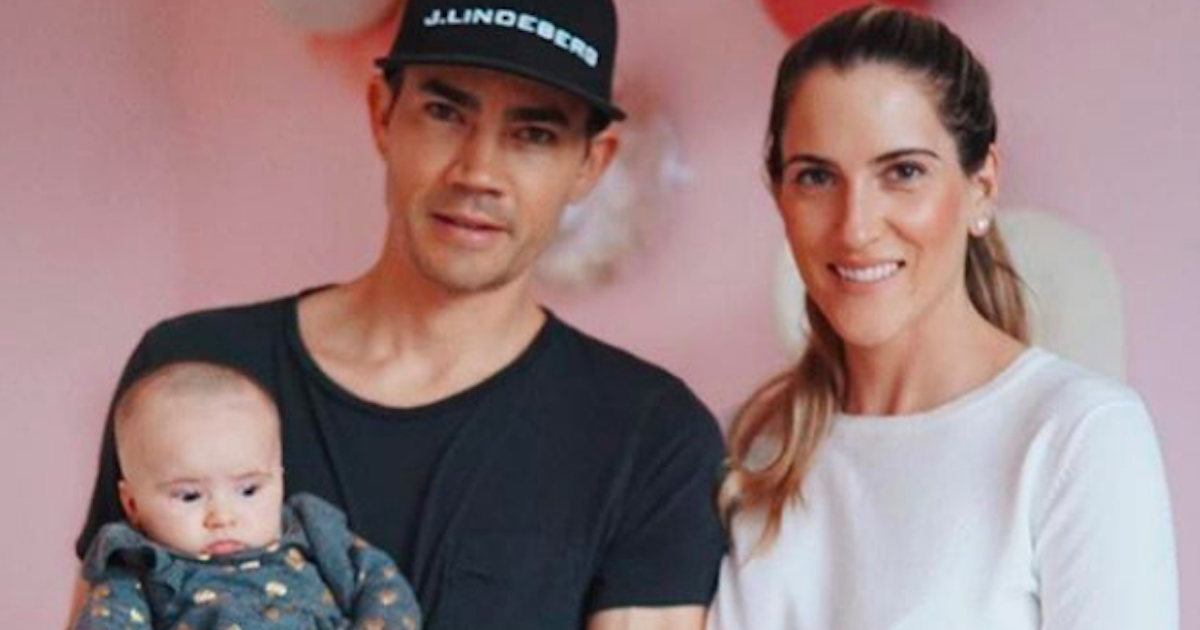"Remaining strong and positive is the only option," says pro golfer Camilo Villegas, whose family is currently going through an extremely difficult time as they care for their 20-month year old daughter Mia who is battling cancer.
Villegas and his wife, Maria, first felt like something was wrong when they noticed Mia was extremely more fatigued than usual, and wasn’t as active as she used to be. As these symptoms continued, Villegas and Maria decided to get her checked at a children’s hospital, and doctors discovered Mia had tumors on both her spine and brain. Once receiving the news, Mia immediately underwent surgery, but is still going through rounds of chemotherapy for treatment. Initially, the Villegas family kept Mia’s diagnosis quiet, as they didn’t want receive pity from their friends and colleagues.
Read MoreDespite Mia’s disease, and its impact on their family, Villegas says he and his wife are trying to remain positive and grateful for the small achievements during their daughter’s treatment.
“When this happened, I cried for three days,” Villegas said. “But, even though I needed to cry for three days, I realized that wasn't the solution…You can listen to your emotions, but you've always got to go back to that positive attitude, good energy and hope. That is what will keep you moving forward. That is what keeps us moving forward. MÃa will keep fighting, and hopefully one day soon we'll celebrate when everything with her is clear.”
Children And Genetic Testing
Sometimes, cancer can appear in children who have no family history of the disease. However, some survivors who have a history of cancer in their family have taken extra precautions to learn whether their children are also at high risk of developing the disease in the future. This was the case for Dave Dubin, who was diagnosed with Lynch Syndrome which predisposed him to several cancers. Seeing as Lynch Syndrome is hereditary, he decided to be honest with his sons about his Lynch Syndrome, and the fact that there's a chance that they have it too.
https://www.instagram.com/p/Bv71tmZncG6/
“If you have a genetic mutation, and you don’t discuss it with your children, and you let them go through life without having them know, it’s almost criminal,” says Dubin. “As a parent, you want to protect your children. We are very open with the boys, because there’s a 50/50 chance of essentially them inheriting my mutation.”
Dave Dubin explains why he talked to his children about genetic testing
Pediatric Cancer Success Stories
Luckily, in many cases, those diagnosed with pediatric cancer have high survival rates, and are able to make new memories with their friends and family. Justice Wexler was diagnosed with acute lymphoblastic leukemia (ALL) when he was young, but thanks to chemotherapy and round the clock help from doctors, he’s now 16 years old.
“If you’re ashamed of what you’ve been through, don’t be,” Wexler says. “It makes you stronger as a person. While I would trade what happened to me in an instant, like if I’m failing in school, whatever, it’s like, I beat cancer.”
Childhood cancer survivor Justice Wexler gets real about the chemo experience
Learn more about SurvivorNet's rigorous medical review process.


